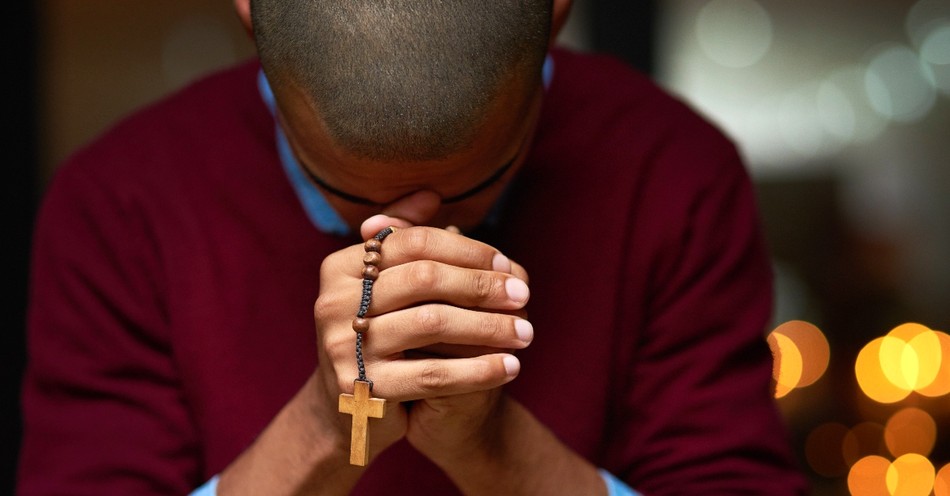Mortal sins are part of the doctrine of Catholicism. Religions outside of Catholicism do not hold to the belief of mortal sins as the concept of mortal sins is not found in the Bible. Mortal sins are described as sins that lead to the death of one’s soul (“Mortal Sins,” About Catholics).
This concept can be difficult to understand for those within Catholicism as well as those outside Catholicism. This article has the purpose of diving into the meaning of mortal sins and what the Bible says about this topic.
What Are Mortal Sins?
Within Catholicism, there are two types of sins — venial sins and mortal sins. Venial sins are sins that are not as bad as mortal sins. According to Catholicism, venial sins do not break one’s friendship with God, yet mortal sins do break one’s relationship with God.
Mortal sins are rated as the worst types of sins and there are three conditions for a mortal sin. The three conditions include it being a grave matter, having the full knowledge that the action is a mortal sin, and the full consent or “freedom” to participate in the mortal sin (Ibid.).
In other words, in order for a mortal sin to not be defined as a mortal sin, it has to be done innocently, meaning that the one who committed the mortal sin did not know it was a mortal sin.
Examples of mortal sins according to Catholicism consist of:
- Idolatry, divination, magic, sorcery, sacrilege, atheism, blasphemy, perjury, failure to attend Mass;
- Murder, abortion, euthanasia, suicide, scandal, drug abuse, gluttony, alcohol abuse, terrorism, extreme anger, hatred, extortion, adultery, divorce, fornication, pornography, prostitution, rape, homosexual acts, incest, masturbation;
- Theft, cheating, defrauding a worker of his wages, unfair rages, taking advantage of the poor, false witness, adulation, lying, lust, avarice, envy;
- Voluntary doubt of faith, heresy, despair in hope, presumption, indifference, ingratitude, lukewarmness, acedia, and hatred of God (Ibid.).
Within the Catholic religion, those who commit these mortal sins will sever their relationship with God and the sin will ultimately end in death. Mortal sins can be forgiven according to Catholicism as long as the person participates in confession to a priest and lives in repentance.
What Does the Bible Say?
The Bible does not specify that one sin is worse than another sin. All sins are equal in God’s eyes. When Jesus died on the cross, He died for the sins of the entire world (John 3:16-17). Once a person places faith in Christ as their Savior and Lord, they are forgiven of their sins.
Ephesians 1:7 tells us, “In him we have redemption through his blood, the forgiveness of sins, in accordance with the riches of God’s grace.” After we are saved, we still continue to sin, yet we can ask for forgiveness.
1 John 1:9 states, “If we confess our sins, he is faithful and just and will forgive us our sins and purify us from all unrighteousness.” The only person we have to confess to and ask for forgiveness from is God. The Pope, a priest, or any other person cannot forgive us of our sins.
Only God Himself can forgive us for our sins. Mere men cannot forgive us of our sins, nor can they bless us with eternal life. Only the Lord Jesus can give us eternal life, redemption, and salvation.
In the Bible, we are told that the whole world is suffering the pains of sin because of the fall of man and is eagerly waiting for the Lord’s restoration (Romans 8:22). Until that time, all humans are born into sin, and we live in a sinful world.
The Roman Catholic Church advocates that there are different levels of sin, such as venial sins or mortal sins, yet all sin is sin to God. No sin is more severe than another sin. Many people try to place a hierarchy on sins, yet at the end of the day, all sin is still sin.
The Bible doesn’t classify some sins as “mortal sins” and others as “venial sins.” These classifications of sins were added by the Catholic Church after the original writings of the Old Testament and the New Testament.
The aspects of venial sins and mortal sins are just two additions Catholicism adds to the Bible. Catholicism is known to add extra-biblical materials that are not found in the Bible, such as purgatory, worship of Mary, and praying to the saints to name a few.
Thus, it is not surprising that they added in the aspect of venial and mortal sins. They misinterpreted the Bible passage of 1 John 5:17, “All wrongdoing is sin, and there is sin that does not lead to death.”
This passage does not mean that one sin is worse than another sin nor does it hint at the idea of “mortal” sins. Rather, the best interpretation of 1 John 5:17 is that the sin the Apostle John is referring to is any sin that is ongoing and consistent in a believer’s life.
Even if a Christian continues to suffer from falling into sin throughout their life does not mean their salvation is affected. In fact, nobody’s salvation can ever be affected by their actions because salvation has nothing to do with our actions or deeds.
Rather, salvation is based on placing faith in Jesus Christ (Ephesians 2:8-9). No amount of sin can take away a person’s salvation because we did nothing to earn our salvation. This is not to say that Christians should be mindless and commit every sin possible because we can seek forgiveness and receive it.
Paul tells us this vital information, “You, my brothers and sisters, were called to be free. But do not use your freedom to indulge the flesh; rather, serve one another humbly in love” (Galatians 5:13). With our freedom, we need to choose to do the right thing even though it is hard.
Doing the right thing is rarely easy, though it is what we must always do. As believers, we will continue to sin; however, we have the Holy Spirit in us to help us to not sin.
Understanding Sin
All sin is equal in the Lord’s eyes. Every sinful action and every sinful thought are sins. There is not a hierarchy of sin as all sin is detestable to God (Proverbs 6:16-19). He doesn’t want us to have any part in sinful behavior and He certainly does not want us to live a life of sin.
Since we have come to know Jesus as our Savior and Lord, we should want to do the things that glorify Him, such as obeying Him and doing our best to not sin. All sin is sin and all sin hurts God.
Even if we don’t consider our sin to be toward God, all sin ultimately goes back to sinning against Him. As Christians, we know mortal sins are not true, yet it is still important that we try to live our lives to the glory of God.
While it is impossible to be free from sin, we can still try our best and pray for God’s help in our battle against temptation. With the Holy Spirit’s help, direction, and guidance, He can help us overcome temptation.
Mortal sins are an aspect of Catholicism; however, it is not biblical. It is the belief that certain sins lead to death if they meet certain criteria.
If you are worried about mortal sins today, know that all sin is equal and all sin can be forgiven by God. Bring your concerns to God and ask for His forgiveness. He will give you the peace you need.
For further reading:
Is There a Sin That Leads to Death?
Does God See All Sins as Equal to One Another?
What Does it Mean ‘The Wages of Sin Is Death’?
Photo Credit: ©iStock/Getty Images Plus/Peopleimages





